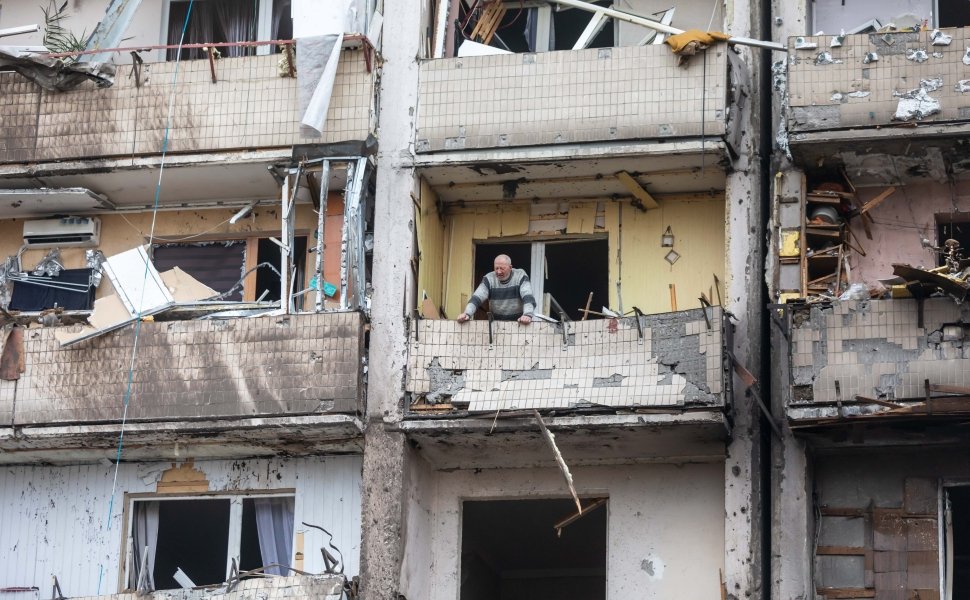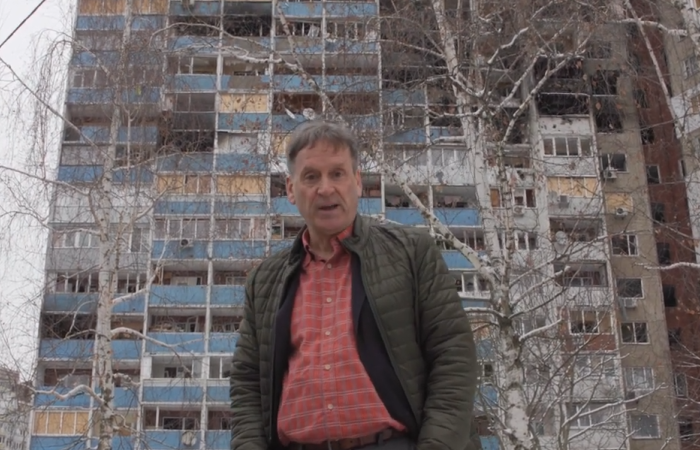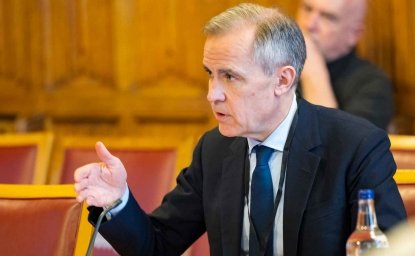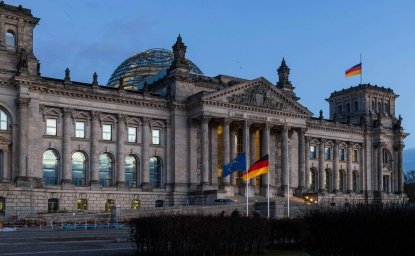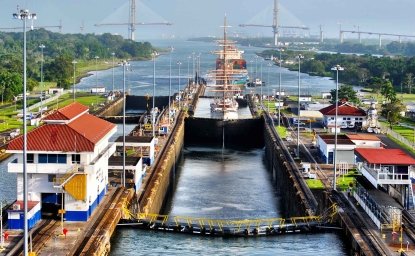This transcript has been lightly edited for clarity.
John Milewski: Welcome to the Need to Know podcast from the Wilson Center, a podcast for policymakers available to everyone, always informative, nonpartisan and relevant. We go beyond the headlines to understand the trendlines in foreign policy. Hello, I'm John Milewski. Welcome back to another episode of the Wilson Center's Need to Know podcast, a podcast for policymakers available to everyone. As we record this episode, we're marking the two year anniversary of the start of Russia's ongoing invasion of Ukraine.
Today's guests recently traveled to that war torn nation, and he's here to tell us what he observed on the ground. Mark Green is president and CEO of the Wilson Center. He previously served as a member of Congress representing Wisconsin eighth District. Also as ambassador to Tanzania and as administrator of the US Agency for International Development. I could go on and on.
Ambassador Green, but I won't embarrass you. Amazing resume. Welcome. Thank you for joining us.
Mark Green: John, it's great to be with you again.
JM: So let me ask you first about how the trip came about.
MG: Well, it was the UN high commissioner for Refugees that approached us. First off, the Wilson Center is doing more and more work on human displacement. Not because we suddenly decided human displacements fun. It's instead because it really is one of the great historic challenges facing the world. 110 plus million displaced people around the world. And the work that we've been doing hopefully offers some ideas for the future.
MG: So they asked me about going to Ukraine. I was there last ten years ago for the elections as an election observer and jumped at the chance to not just be in the capital, but to get all around the country.
JM: Well, you know, we have some video to share for those who are watching the vodcast version of Need to Know. And we know that their time is valuable and limited and need to know isn't just one of the resources available. Another is this new feature you created called Points of Clarity. And this one was shot in Ukraine. It features the ambassador, and he responds to the question on the table.
JM: Are Ukrainians ready to give up? Let's take a look.
MG: The building behind me, was it just a couple of days ago? There are two things I take away from it. First off, the fact that Vladimir Putin is targeting civilian infrastructure. He's trying to hit the citizens where they live to inflict as much suffering as he can. On the bright side, look how quickly the Ukrainians are moving to repair, rebuild, reconstruct and move on.
The resourcefulness of the Ukrainian people against the brutality and the evil of the Russian attacks. Again, as always, my money's on the Ukraine.
JM: You can find additional episodes of points of clarity at Wilson Center dot org. Ambassador Green When I look at those that video of you standing in front of this war ravaged apartment building that is being rebuilt in real time. I get a sense of the visceral experience you must have had. What did you learn by being there that you really can't understand from a distance?
MG: Well, first off, as you sort of suggested, the remarkable resilience of the Ukrainian people. They're all within hours of a missile strike working to repair and restore the building and do what they can to restore sort of some semblance of normal life for the families of Ukraine. That was inspiring to see. But secondly is to see the level of damage that Vladimir Putin has rained down upon them.
It's extraordinary the suffering that they've gone through. But the destroyed buildings, roads, the infrastructure. Everywhere you look, you can see that Russia has tried to disrupt the entire way of life of Ukrainians. And Ukrainians argue essentially to wipe them off the map. That is something that you really had to see firsthand. And also, just to get a sense of what it's like to be in an area like that.
We were under air raid warnings all the time. We, in fact, in the middle of the night, went down into one of the bomb shelters, spent a few hours. And, of course, it's easy for us because we're eventually leaving. This is what they go through each and every day. And so to see a small piece of that and then finally again, getting back to resilience the way that the Ukrainians are responding.
So one of the things that we witnessed were Ukrainian children going to school in special schools, actually constructed and hosted in subway stations. We been outside and seen how Putin's attacks had targeted civilian infrastructure, destroyed schools. So the Ukrainians decided to move underground and to do their best to teach kids there. So, again, terrible destruction, terrible damage. And yet the Ukrainians are moving forward.
They're bound and determined to keep the future within reach.
JM: Tell us what you observed in terms of refugees and internally displaced persons.
MG: Well, the numbers are shocking, right? 14 million overall are displaced. Most of those are internally displaced. And in the words chased away from where they were living there, their village, their community due to safety. And then you've got so many that have fled into other countries, Moldova, which is actually hosting more Ukrainian refugees per capita anywhere else in the world.
But Poland, as so many of us know, taking huge numbers. So you see these poor people on the move and the needs are trying to provide some semblance of nutrition, health care, educational services, PTSD, counseling, because these poor people have been through, you know, quite literally hell. And also just finding ways to connect families place after place. You've got families where family members have simply disappeared and they've been then taken in trying to restore and pull together those families.
There's so much that needs to take place. The Ukrainians are doing fantastic work. They're not asking us to fight. They're not asking Americans to put on uniforms. They are asking us for financial help, assistance as the the deal with one of the largest armies in the world. Again, thrilling to see in terms of their resilience and resolve, but also your heart breaks for them each and every day.
JM: I think I know the answer to this question, but I feel compelled to ask it anyhow. And that is, is the level of support that refugees and displaced people are receiving. Is it anywhere close to the level of need?
MG: Well, we're there's a historic gap in terms of what the needs are and what the assistance is. Of course, we're not simply dealing with what's taking place in in Ukraine, in the immediate area, but what's taking place in the Middle East and so many other parts of the world. The world really is in a time of fantastic need.
I'm proud of what the US has done. We're the largest humanitarian Italian donor in the world. But quite frankly, we need to do more and we need others to do more to meet these needs. Let me just say, one of the reasons it's so important is by helping to take care of young people, families, to help them be able to build their self self-reliance.
You're making an investment in their future because if their lives are disrupted and they can't get the skills they need for the future. They become wards of the state. They become long term dependents, which is bad for them, of course, but bad for the world. We want to help these courageous allies of ours touch the wrong future, have economic opportunity.
The partners of the US like they want to be. There's so much that we can do with a little bit of resources.
JM: About the importance of that assistance. Do you see any path to victory for Ukraine or even holding the line for Ukraine without US support? Is that the secret sauce that's necessary to to even imagine what victory might look like?
MG: I mean, I do believe the Ukrainians can can win in the sense of expelling Russians from their territory. But they do need the US to be with them financially and understand that There are a couple of reasons for that. There's the obvious: The US largest economy in the world, providing economic assistance is crucial, but it also is signal sending when we stand with Ukrainians and Moldovans as they're being pummeled in the case of Ukraine by a brutal authoritarian neighbor.
We're sending a signal that the free world will stand together and that will push back against authoritarianism. That signal is terrifically important. If the U.S. were to back away, if the US were to go quiet, not only is there an obvious immediate financial need, but we send a terrible signal. I'll just give you one quick story on something that I'll never forget.
I visited St Michael's Cathedral, one of the last stops I had in Ukraine. And St Michael's is that iconic, bright blue church that you see over the shoulder of every news reported. That report from Keep Beautiful Golden Dome. And I was there ten years ago. So I went to revisit the church and I ran into a soldier. I ran into a young guy in uniform.
And when he saw me, he came up to me. We were talking, pulled up his sleeve, showed me his bullet wounds from the defensive butcher where the terrible atrocities took place. And he looked at me and he simply said, You're American. Are you with us? And I said, I think so. And he breathed this deep sigh of relief.
So much of the world looks to the US I know Americans, we get tired of hearing about obligations and the need to engage in the need to lead. But looking in the eyes of this soldier, looking in the eyes of a woman that I met who lost her husband to a missile attack, America is a force for good and the irreplaceable force for good in the world.
JM: You know, most of us see Congress from the outside looking in. You're one of the few who've seen it from the inside, looking out for four terms. And I'm wondering, what do you have to say directly to your former colleagues and friends on the Hill? What do they need to understand that a trip to Ukraine allows you to understand as they debate and discuss how to continue US support?
MG: Well, one of the great things about this trip, when you're traveling with the UN, you're able to get out outside the embassy and go all around the country, as we did within spitting distance of Russian front lines. So we were able to see in very real terms the damage that's done. And it's horrific. And as we've talked to leaders there, but also places like Moldova, even in Poland, they're saying, look, be clear, Putin's not slowing down.
Putin is going to if he succeeds in Ukraine, keep going. He'll go after Poland, he'll go after Moldova, he'll go after Georgia and others. And this is not simply a bilateral squabble within the family. This is an authoritarian trying to really turn the order of the region and the world upside down. I think that's important. Secondly, I was struck by like know where I've been, how closely Ukrainians are watching what's happening in Washington.
One of my traveling companions, who is a former Senate staffer some years ago, said that as he was walking around, he could have sworn the word cloture being used by Ukrainians. In other words, they are watching closely to see whether the United States of America is going to stand with them in their hour of need. Ukrainians also said to us over and over again, look, we will be there for you.
You know, we are your friend. We will stand with you. You were standing with us in our hour of need. Don't underestimate. We will be there for you. Really inspiring at a time when they're under such onslaught from the Kremlin, to hear them talk in those terms. They will win if we stand with them. And it comes down very simply to that, I think.
JM: Well, those are great words to end on. Thank you sincerely for sharing your experience with us and excellent reporting that you've done from your trip that people can share additionally from this discussion, but also by looking at the points of clarity episodes that we'll be releasing over the course of the next several days. Ambassador Green. Thank you.
MG: Thank you John.
JM: We'll be back with another episode of Need to Know soon. Until then, in addition to thanking Ambassador Green, I want to thank all of you for watching and listening and on behalf of the Wilson Center. Sincere thanks for your time and for your interest.

